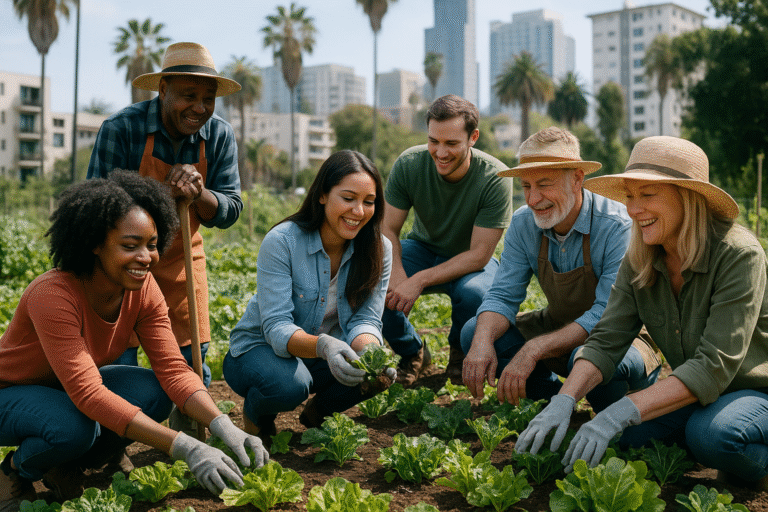Los Angeles celebrated the growing trend of urban gardening, a grassroots movement that is reshaping the city’s approach to food production and sustainability. With food insecurity continuing to be a challenge in many urban areas, the rise of local food cultivation has become an innovative solution to address both access to fresh produce and the environmental costs of food transportation.
At a community event held in the heart of the city, urban farmers and gardening enthusiasts gathered to share tips, tools, and resources for growing food in small spaces. The event, hosted by the Los Angeles Community Gardening Coalition (LACGC), saw attendees of all ages and backgrounds come together to learn about everything from container gardening on apartment balconies to creating rooftop farms in industrial areas.
LACGC’s director, Maria Gonzalez, spoke passionately about the mission to transform underused urban spaces into productive gardens that can provide food security. “We’re witnessing a shift in how we think about food,” she said. “People are reclaiming their connection to the land, even in a sprawling urban environment like LA.” Gonzalez highlighted the importance of urban gardening in areas traditionally underserved by grocery stores, where fresh produce is often scarce, and the cost of healthy food is prohibitive.
The event featured workshops led by local experts, including sustainable agriculture advocate Keith Fields, who shared his knowledge on composting and water conservation methods. “Urban gardening doesn’t have to be complicated,” Fields explained. “It’s about being resourceful with the space you have and using what’s available in your community.” Fields, who has worked with several community gardens throughout the city, emphasized the environmental benefits of reducing the carbon footprint associated with food transportation.
One of the standout projects highlighted was the “Seed-to-Table” initiative, a collaboration between local schools and community organizations aimed at teaching children how to grow their own food. The initiative has been instrumental in educating the next generation about healthy eating and the importance of sustainable food practices. Students from Garfield High School participated in the event, showcasing their efforts to cultivate a vegetable garden on school grounds.
The movement is not only about food production but also about community engagement and environmental awareness. The popularity of urban gardening in Los Angeles is creating stronger neighborhood connections as people work together to build gardens, exchange resources, and share knowledge. These efforts are also helping to mitigate the urban heat island effect by increasing green spaces, improving air quality, and fostering biodiversity.
While challenges remain, particularly in terms of access to land and water, the success of urban gardening initiatives in Los Angeles shows promise for other cities grappling with similar issues. As communities continue to embrace urban agriculture, this movement serves as a reminder of the power of individuals and neighborhoods to create meaningful change in their local environments.



